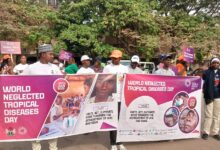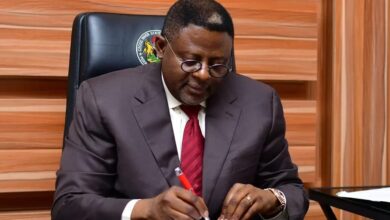1.9m Children In Adamawa, Yobe, Benefit From WHO Anti-malaria Campaign

The World Health Organisation (WHO) has administered Malaria drugs to over 1.9 million children aged 3- 59months, living in Adamawa and Yobe states of Nigeria.
WHO disclosed this via its official website on Monday, November 1, 2021.
TheFact Nigeria gathered that Malaria annually accounts for over 300,000 deaths in the country and the disease is of significant burden and cause of morbidity and mortality in children under five years.
In its effort to reduce the malaria burden on the country, WHO embarked on a Seasonal Malaria Chemoprevention (SMC) campaign in the two states. SMC is the administration of four monthly courses sulfadoxine-pyrimethamine (SP) and amodiaquine (AQ) (SPAQ), to children aged 3-59 months during the rainy season to reduce the burden of the disease.
To implement the SMC campaign, WHO provided technical support to both states by training 11,000 trained health workers/volunteers comprising of the recorders, community drug dispensers, community mobilizers, community leaders, LGA stakeholders, monitors, and supervisors who administered SMC drugs to more than 1.9m children aged 3 months – 59 months across 404 wards in 38 implementing LGAs of the states.
The drugs were administered as the fourth cycle of the Seasonal Malaria Chemoprevention, SMC intervention in Adamawa and Yobe states. It is part of the larger efforts to eliminate the scourge in the states and the country in general.
Aside the SMC campaign, WHO-supported community health champions also played a key role in enlightening the community on why the intervention was important.
Speaking on the effect of WHO’s malaria intervention on its prevalence in the country, WHO Emergency Manager, Northeast Nigeria, Dr. Richard Lako said:
“Although the malaria burden in Nigeria is still high there has been a progressive decline in the prevalence of malaria in Nigeria from 42% in 2010 to 23% in 2018.
“This may be closely related to a surge in intervention coverage,
“The implementation of these cycles in Adamawa and Yobe states will undoubtedly, play a pivotal role in reducing the burden of malaria not only in the northeast but the nation at large.
“WHO will continue to provide technical guidance to these states”, said Dr. Lako.
Appreciating WHO and partners for the intervention, Commissioner for Health and human services in Adamawa, Professor Abdullahi Isa said:
“WHO has been providing technical support to the state since the first-ever launch of Seasonal Malaria Chemoprevention campaign in 2018.
“Thanks to the profound support of the Global Funds through the National Malaria Elimination Programme for the procurement and delivery of more than six million doses of the SMC drugs for the proposed four cycles in Adamawa and Yobe states.
“I know this intervention will help to prevent malaria especially the most vulnerable”, he said.
Funding for the implementation of the four successful cycles was provided by the Global Fund through the National Malaria Elimination Programme.






